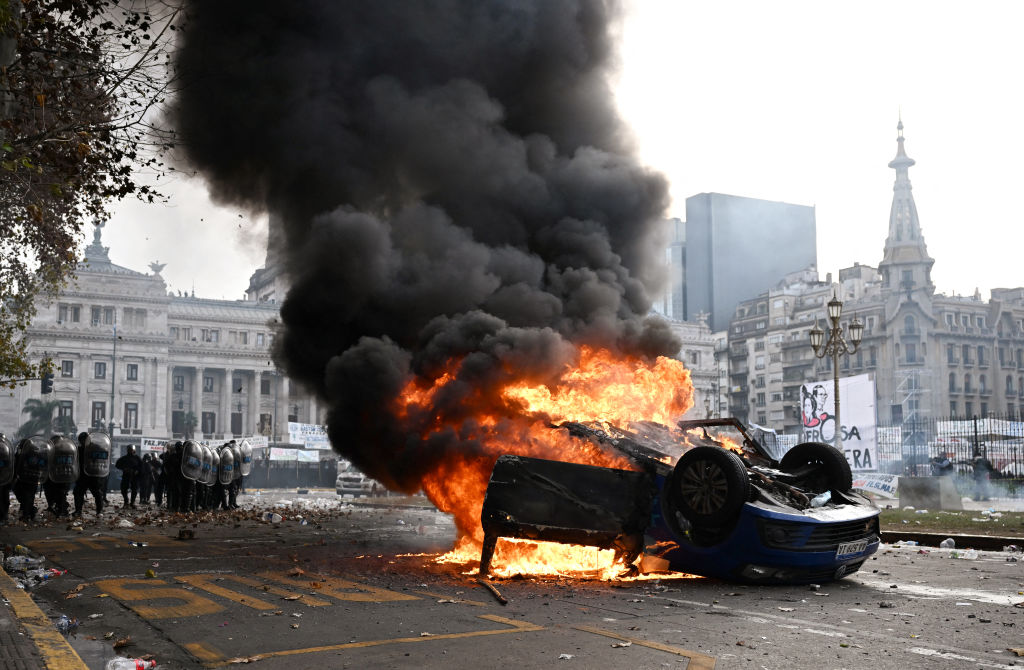Tensions Rise in Argentina Over Controversial Law
Protesters clashed with the police near the Argentine Congress as senators debated the highly contentious Law of Bases and Starting Points for the Freedom of Argentines. The bill, crucial for President Javier Milei's government, was generally approved on Wednesday, sparking frustration and unrest across various factions.
The opposition's hard-core Kirchnerism, along with the General Confederation of Labor (CGT), the two CTA, leftist groups, and social organizations, marched toward Congress in protest of the reform project. Unionists and activists set up a vigil in the Plaza de los dos Congresos the day before, organizing an event with open radio, music, and debates airing concerns about what they termed an 'anti-Argentina' project.
Buenos Aires' Minister of Infrastructure, Gabriel Katopodis, led the pre-protest rally, emphasizing the vigils' symbolic significance. The scene turned chaotic quickly as the first demonstrators arrived with a robust security operation in place to ensure the anti-picket protocol was activated. Picket groups converged from various train and subway stations, ready to mobilize against the legislation.
One of the leading critics of the libertarian government, Juan Grabois, called for a gathering at Virrey Ceballos, emphasizing the urgency of the situation. Other groups, such as the Evita and Barrios de Pie Movement, also encouraged mass mobilization. Security Minister Patricia Bullrich had previously warned of potential violence and emphasized that only peaceful protest would be tolerated, citing readiness to deploy forces as necessary.
Labor leader and CGT co-secretary Pablo Moyano added pressure on senators, stating that their votes would determine whether they became 'heroes or traitors' to Argentina. He announced a mass gathering at Plaza Congreso, drawing workers, retirees, and various societal sectors in a unified front. Bullrich reiterated that the anti-picket protocol would be applied to ensure that street closures would not disrupt the city, affirming a firm stance against any use of violence.
- ## Russian Fleet Arrives in Havana Amid Global Tensions
- In another significant development, a fleet of four Russian warships, including a frigate and a nuclear-powered submarine, arrived at the port of Havana, Cuba. This move marks a strengthening of ties between the two Cold War allies, showcasing a renewed military partnership.






